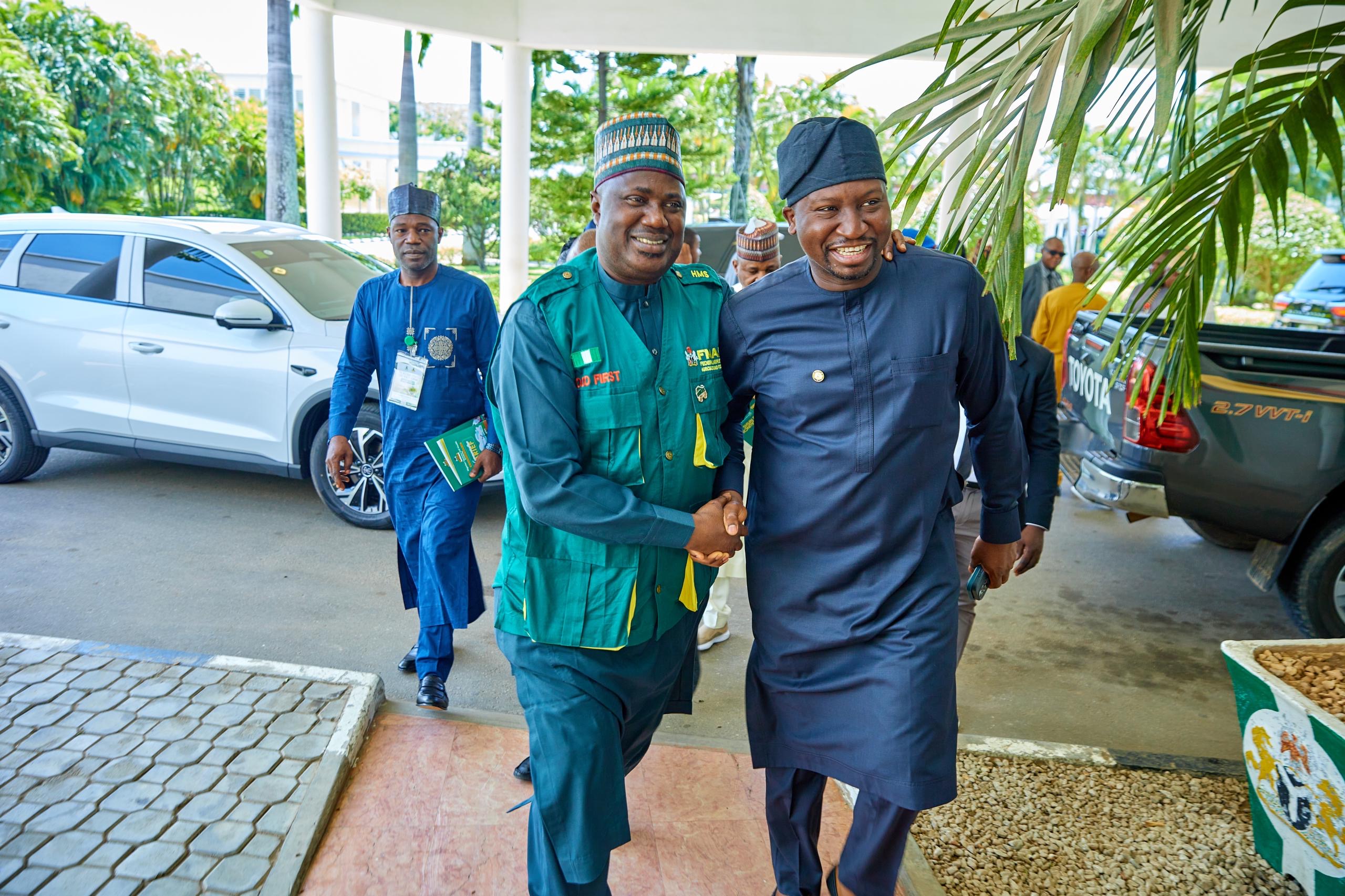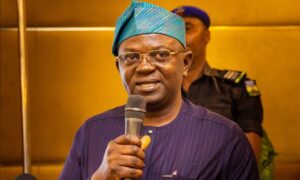Nigeria continues to advance its agricultural transformation as the Executive Secretary and Chief Executive Officer of the National Agricultural Land Development Authority (NALDA), Engr. Cornelius Adebayo, joined leading policymakers for the official launch of the Nigerian Farmers Soil Health Initiative. The initiative, unveiled by the Chairman of the Senate Committee on Agriculture, Distinguished Senator Salihu Mustapha, represents another vital step toward achieving food sovereignty and sustainability. Implemented through the Office of the Minister of State for Agriculture and Food Security, Senator Sabi Abdullahi (CON), the project aligns with President Bola Ahmed Tinubu’s Renewed Hope vision for national prosperity.
During the event, Engr. Adebayo reaffirmed NALDA’s commitment to supporting initiatives that strengthen Nigeria’s food systems. He emphasized that soil health remains the foundation of agricultural success, directly influencing yields, food quality, and long-term environmental balance. Therefore, he urged stakeholders to see soil restoration not merely as a policy goal but as a national duty. By revitalizing degraded farmland and encouraging responsible soil practices, Nigeria can ensure consistent productivity and economic stability across its agricultural value chain.
Furthermore, Engr. Adebayo highlighted that the Nigerian Farmers Soil Health Initiative will directly empower farmers through innovation, education, and access to modern technology. He explained that improved soil quality leads to healthier crops, stronger harvests, and greater food security. Consequently, farmers’ incomes rise, rural communities thrive, and local economies expand. He added that NALDA would continue working with agricultural experts to introduce practical solutions that enhance soil fertility and promote eco-friendly farming systems nationwide.
He also stressed that achieving meaningful results demands collaboration among all stakeholders. State governments, private investors, and research institutions must join forces to drive this transformation. Through partnership and shared vision, Nigeria can establish a resilient agricultural framework capable of withstanding global food challenges. Engr. Adebayo urged the private sector to participate actively by supporting sustainable technologies, investing in rural infrastructure, and promoting innovation. When these efforts align, he said, the collective impact will redefine the nation’s food landscape.
Moreover, he noted that NALDA’s existing programs already complement the objectives of the new soil initiative. These programs focus on youth training, mechanized farming, and land development projects that empower local farmers. He explained that merging these initiatives would accelerate progress toward full food sovereignty. By nurturing the next generation of farmers and engineers, NALDA continues to create opportunities for young Nigerians eager to contribute to national growth.
He also praised the leadership of the Senate Committee on Agriculture for its consistent support of reform-driven policies. He commended Senator Salihu Mustapha and Senator Sabi Abdullahi for their hands-on approach to agricultural development. Their collaborative leadership, he said, ensures that every program delivers measurable results and long-term benefits. Such accountability, he emphasized, builds public trust and encourages more citizens to invest in agriculture.
Engr. Adebayo reiterated that soil health is not merely a technical issue but a critical component of food sovereignty. He explained that countries capable of producing their own food remain economically stronger and politically independent. Therefore, prioritizing soil management is essential to Nigeria’s future. Through science-based research, responsible resource management, and inclusive policy execution, the country can not only feed its population but also contribute to regional food exports.
As he concluded, Engr. Adebayo reaffirmed NALDA’s unwavering readiness to collaborate with all relevant agencies in implementing the Nigerian Farmers Soil Health Scheme. He expressed optimism that continued cooperation among government institutions and private stakeholders would drive national progress. With each new initiative, he said, Nigeria moves closer to its goal of food sovereignty and agricultural self-reliance. Through innovation, dedication, and unity of purpose, the nation’s farmers can become global examples of resilience and productivity.





